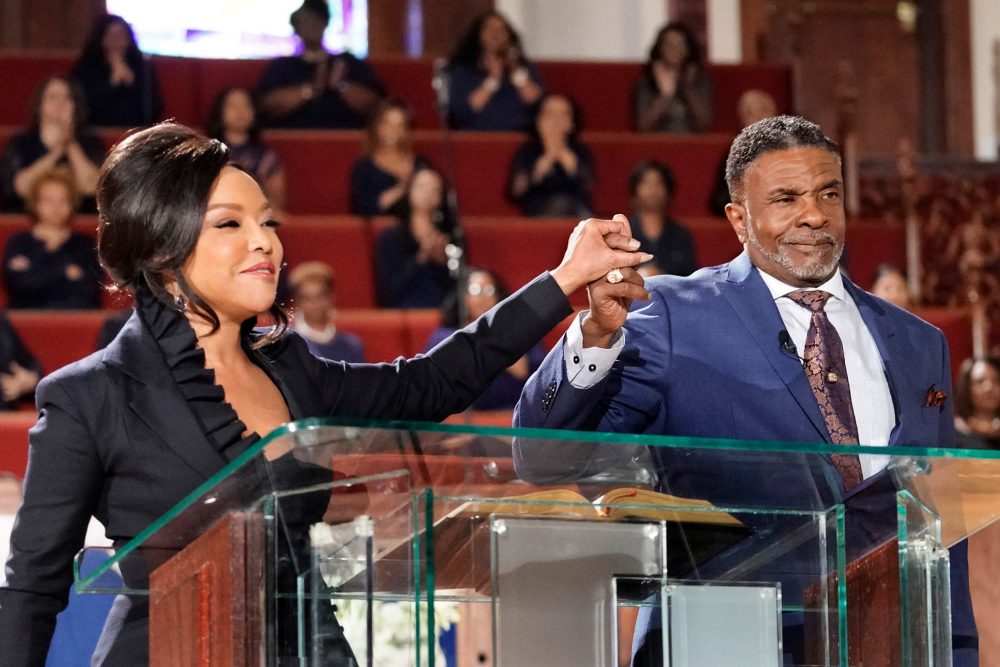
Hello World,
On Sunday, I read an interesting article in The New York Times entitled “It’s On Men to End Sexism in the Black Church” by Lawrence Ware, a minister in the Progressive National Baptist Convention. It intrigued me because much of what I read reminded me of the entire thrust of Season 3 of “Greenleaf.” (One of my favorite show titles from this season was “She Changes Everything.”) Lady Mae realized that she had forfeited her calling to ministry, folding herself into her husband’s calling like hers never mattered. During Season 3, she reclaimed her call to ministry which ignited a power play against her husband who struggled to see her as an independent force and not his appendage. And what compounds the dynamic is that Bishop was always able to see and acknowledge his daughter’s call to ministry but his former partner in life was treated in some respects like a pretty prop.
Below are a few excerpts from the opinion piece:
“When I was little, my favorite church services were when women took charge. This happened only a few times a year, on the fifth Sunday of a month. But it always meant that the spirit was high and the music was good. On one of those special Sundays, when I was 9, I first noticed something odd: The guest minister sat in regular pew seats, not in the seats at the front of the church reserved for the clergy. And she delivered the sermon from the lectern, a little wooden stand set apart from the congregation, not at the pastor’s sacred pulpit — the place whence God spoke.”
“If a young, unmarried woman got pregnant, the congregation would whisper about her until the child was born. When these young mothers returned after giving birth, many knelt at what was called a “mourner’s bench” after the sermon, to publicly apologize for indulging in sexual sins. To this day, I’ve never seen a man do the same.”
“For too many of my friends, even black men who identify as Christian, their awakening to the injustices women have long faced are linked to selfish concerns: namely, they must first have a daughter to hear what black women have been telling us all along. If that is what’s required for change, then too many men will continue to live in a way that does harm to women.”
If you attend a black church, have you witnessed sexism there? My church, a black church, is part of an association of mostly white Christian churches. As far as I know, women are not allowed to be pastors and or ministers at churches in this association. According to some, Scripture mandates this stance. “I do not permit a woman to teach or to assume authority over a man; she must be quiet. For Adam was formed first, then Eve.” 1 Timothy 2:12-13
However, female ministers are allowed to use the pulpit to speak at my church on various special occasions. And I love female pastors/ministers I must say! That is one of the reasons why I enjoyed OWN’s “Greenleaf” from the very beginning. I love that the show began with Grace struggling in her call to ministry.
Have you witnessed sexism at your church? Do you think women should be allowed to be pastors/ministers at churches?
Below is Ware’s final thought on the matter:
The black church would not exist without black women. However, for far too long, black men have forced them to be second-class citizens. It is time for black churches to do better. Not because it is popular right now, but because it is right.
Should Black Men Be Responsible for Ending Sexism in the Black Church? To read Ware’s entire article on the issue, go HERE.
Any thoughts?

In my classes, speeches and sermons, I tell white people that if they fail to speak up when confronted with anti-blackness, they are giving space to hate. I say this because I believe that white supremacy is a problem that white people must address. Yes, black people are often forced to call out racism, but we are not responsible for it or empowered to end it. People with privilege must do that.